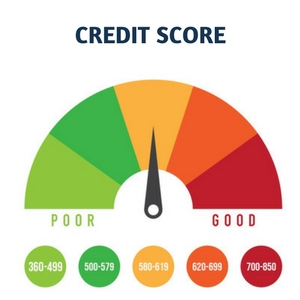You might have heard terms like “hard inquiry” or “soft inquiry” before when searching for a loan, whether it be a home loan, auto loan, or any other kind of major debt.
Hard inquiries, also known as hard pulls, are something you generally want to avoid because they can end up damaging your credit score, but they’re also an inevitable part of almost any kind of credit transaction.
This can make securing a loan frustrating, especially if you have to make several inquiries at different locations while you’re looking for rates. However, there is one area in which you don’t have to settle for the hard option, as many companies are now making soft pull credit cards available to consumers.
All of these terms might sound a bit confusing, but don’t worry – that’s exactly what this article is for. We’re going to explain all the terms and concepts you need to know to understand what a soft pull credit card is, the pros and cons of such a card, how it differs from hard pull cards, and more.
What Is A Credit Score?

A credit score is a statistical number that is used to evaluate how good of a financial investment someone is and how much they can be trusted to pay back their debts. Your payment history makes up about 35 percent of your credit score, with length of history making up 15 percent and types of credit used accounting for 10 percent.
The other 40 percent is made up of a number of smaller factors. If you’re paying your bills regularly and not using all of your lines of credit, your score will be higher. If you have a lot of debt that you’re not paying off, your score will be lower.
Credit score is a major factor in determining whether or not you are eligible for a home loan (or, quite frankly, any other type of loan.) Credit scores typically range from 300 to 800, with anything above 650 being defined as “good credit” and anything below that being defined as bad or “subprime” credit.
If you have a credit score lower than 500, you will probably find yourself getting rejected for most credit opportunities, so it’s always important to do everything you can to make sure your credit score doesn’t get damaged.
What Is A Hard Inquiry?

A hard inquiry, also known as a hard pull, is when a lender or credit card company takes an official look into your credit score. Hard inquiries typically have to be approved by the credit applicant and are required for most major credit opportunities.
These could include applying for a credit card, a bank loan, or a mortgage. Hard inquiries may also be asked for when you join a credit union, open an insurance policy, or rent a car.
A hard inquiry negatively affects your credit score because it suggests that you are about to pick up more debt or that you may be short on cash. Usually this negative effect only drops your credit score by a few points, but those few points can sometimes be the difference between good credit and bad credit.
Moreover, if you’re making several hard inquiries in a short time period (applying for a credit card in the same month you’re applying for a home loan, for example) the effects can stack up, causing serious damage to your credit.
Moreover, even though it only affects your credit for twelve months, a hard inquiry stays on your credit report for two years, so the effects will follow you around for a while.
In general, you only want to make a hard inquiry when you absolutely have to.
What Is A Soft Inquiry?

A soft inquiry, also known as a soft pull, is when a company looks into your credit as part of a background check. Soft inquiries do not require your permission – in fact, they are often made without your knowledge.
Soft inquiries are usually made by an employer who wants to hire you, by an insurance agency that wants to see if you’re eligible for a pre-qualified insurance quote, or when a credit card issuer checks to see if you qualify for certain credit card offers.
Soft inquiries may also be necessary for applying for an apartment, using a bike share program, or starting a new cell phone contract.
Soft inquiries are not connected to a specific application for new credit, which means that they are not an indication of future debt, which means that they do not in any way impact your credit score. They may not even be included on your credit reports, and if they are, they will only be visible to you.
Soft inquiries are therefore highly preferable to hard inquiries in most cases.
What Is A Closed Loop / Open Loop Credit Card?
A closed loop credit card refers to a card whose use is “closed off” to only one store or a small group of stores. An Target REDcard, for example, can only be used at a physical Target location or on Target.com.
An open loop credit card is a card whose use is open to any physical or online location with a credit card reader. Open loop is what most people think of as a “normal“ credit card – something like a Visa or MasterCard.
What Is The “Shopping Cart Trick”?
If you’ve read other articles about soft pull credit or soft inquiries, you might have heard of the “shopping cart trick,” which can potentially be used to qualify for a credit card with a soft pull of your credit history instead of a hard pull. This is preferable if you can make it happen because it means that you can get the benefits of a credit card without damaging your credit history in any way.

Here’s how the shopping cart trick works:
Pre-approved credit card offers don’t do hard pulls, so this method (if it works) can be a good way to get a card without damaging your credit. However, your limit for the card will probably be lower and this method only works with closed loop cards.
That said, it can be useful if you get a card that’s closed for a store that you use often, and using a card obtained through the shopping cart trick can help you improve your credit score if you’re making regular monthly payments on it.
Stores where this trick is known to work in at least some cases include:
Abercrombie & Fitch
Motorola
Victoria’s Secret
Buckle
Gamestop
J. Crew
Express
Overstock
Bath and Body Works
Wayfair
What Is A Soft Pull Credit Card?
A soft pull credit card is more or less exactly what it sounds like – a credit card that you can get with only soft inquiry into your credit, meaning that applying for the card doesn’t lower your credit score. Usually, a soft-pull credit card is used by a company to see if you pre-qualify or can get pre-approved for something.
Soft pull credit cards are great for anyone, but they are especially good for people with low credit scores. When you have bad credit, you may have to apply to several different places before you can get approved for a card.

Soft pull cards mean that all of these applications won’t damage your credit further in the way that a hard pull card does.
Sadly, soft inquiry cards are much rarer than the hard pull variety. Cards linked to Comenity Bank often do not require a hard inquiry. These include the Abercrombie & Fitch Credit Card, the Forever Rewarded Credit Card, the Big Lots! Credit Card, the Torrid Insider card, and many others.
Of course, these are all closed loop cards that can only be used at specific stores. For an open loop option that can be used anywhere, some large banks offer the chance to see if you are pre-qualified for cards before you officially apply.
Pre-approval is not the same as getting accepted, but it does mean that the acceptance process will skip the hard inquiry in most cases.
Some online tools, such as CreditCards.com, let you check for prequalification across multiple banks.
Advantages Of A Soft Pull Credit Card
The primary advantage of a soft pull credit card is that, unlike a typical hard pull credit card, it doesn’t affect your credit score or your credit report. Hard inquiries, like the kind made for a Visa or a Mastercard or a similar typical open loop credit card, negatively impact your credit score because they indicate that you are about to take on future debt.

And hard inquiries stay on your credit report for 24 months – twelve months after they stop having an effect on your score. Soft inquiries don’t appear on your credit report at all.
You can also get soft pull credit cards faster than a hard pull credit card, because you don’t have to wait for the official credit score inquiry to be completed.
You are also more likely to get accepted for a soft pull credit card than you are for a conventional hard pull credit card. When you complete a formal credit card application, you have to provide a lot of personal information including your employment and salary.
If you can get pre-approved for a soft pull card through a method like the shopping cart trick, those issues may never come up. This makes soft pull credit cards ideal for people with low income, bad credit, or a lot of debt who might otherwise get turned down from a hard pull card.
Finally, it is easier to shop around for a soft pull credit card than it is for a hard pull card because each application at a new store or bank doesn’t hurt your credit score and lower your chances of getting accepted for the next application.
It should be noted that consumers in some places may be protected from rate-shopping even with a hard pull inquiry.
In other words, the credit report should only show one inquiry over a 30-day period if you’re applying to lots of the same type of places – say, multiple banks where you’re looking for a home loan. However, these protections don’t always apply for a hard pull credit card.
Disadvantages Of A Soft Pull Credit Card
You now know the pros of a soft pull credit card, but there are some cons, too. The main one is that most soft pull credit cards are closed loop credit cards that you can only use at certain specific stores, meaning they can’t necessarily replace a hard inquiry.
However, there are some soft pull credit cards that are open loop and can be used anywhere. Plus, even if your soft pull credit card can’t replace a hard pull option, it can help you rebuild your credit score quickly if you’re making regular payments on the bill, even if those payments are small.
Final Summary
At the end of the day, there’s currently no way to avoid occasionally allowing a company to make a hard inquiry into your credit score. When you’re applying for a major loan like a mortgage, the company needs to have an official credit report so that they know whether or not you’re a good investment.
But if you want to avoid damage to your credit score, at least there’s one area – credit cards – where you can replace a hard inquiry with a soft one. Hopefully this article has helped you understand soft pull credit cards, and maybe you’ll end up getting one of your own!











